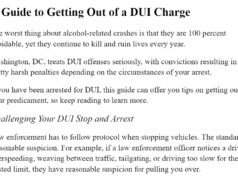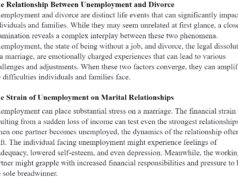SPONSORED CONTENT
By Stephen Hamilton, Board Certified in Criminal Law by the Texas Board of Legal Specialization. Stephen handles cases involving felony charges and is licensed to practice in the state of Texas.
Recently Texas State Senator Konni Burton filed Bill 380, a bill that would replace civil asset forfeiture with criminal asset forfeiture. In reality, the bill would stop the “policing for profit” that civil asset forfeiture has allowed, and would return civil rights back to American citizens and property owners, in particular.
However, the bill still has some harsh critics. This is largely because, like most aspects of law, civil asset forfeiture was created with the intent to protect the public.
According to a piece written by former federal prosecutor, Stefan Cassella, asset forfeiture is crucial to federal law, because it allows the authorities to take possession of any profit made from crime, and it returns property to its rightful owner.
For instance, under civil asset forfeiture law, the police would be able to seize control of a house they believed was being used as a “crack house” to sell drugs to children in a school zone. Because the home is a danger to the public, under current law, the authorities have the power to control it and shut it down.
Most individuals would agree that crack houses need to be shut down, regardless of the residential zone where they may be. And so, it’s easy to see why this proposed bill has so many critics of its own.
But, also like many areas of law, this is one in which there is a loophole. And that loophole is sometimes causing innocent citizens to be held, questioned, or arrested by authorities. And in the most extreme cases, that loophole is allowing the authorities to abuse their power and infringe on the rights of citizens.
Take for instance the Philadelphia couple that was forced out of their home after it was found their son was using it to deal drugs. While his parents had no idea what he was involved in, they still temporarily lost their home.
And there’s also the case of the man from Texas, who was pulled over in Oklahoma while carrying over $50,000 in cash. When the police suspected the money was illegally obtained, they confiscated it, even though the man explained that it was funds raised for an orphanage.
These are instances which clearly demonstrate how detrimental civil asset forfeiture can be, and they’re only two that have prompted Senator Burton to file Bill 380.
If passed, this bill would make a felony conviction a requirement before any property was seized or confiscated, eliminating inaccurate suspicions or discretion on the part of the police departments and other authorities.
Burton’s bill is not an attack on police departments, or any law enforcement agencies. It is however, a potential solution for the many cases that are currently tying up the court systems and essentially, have no criminals involved.



 Sign up for the Blue Virginia weekly newsletter
Sign up for the Blue Virginia weekly newsletter








